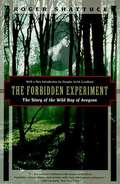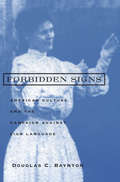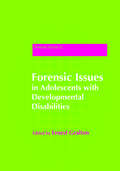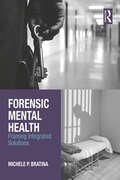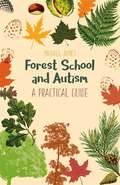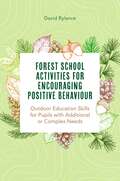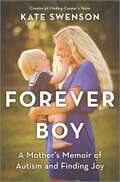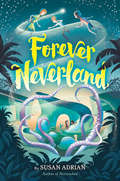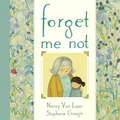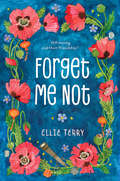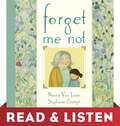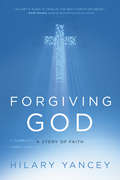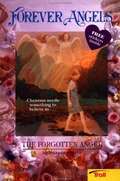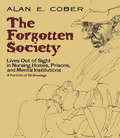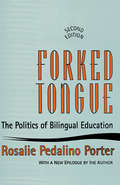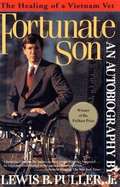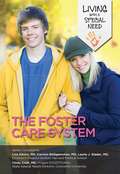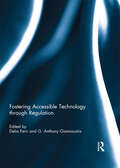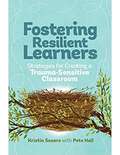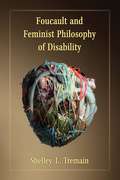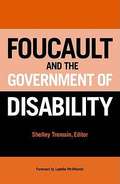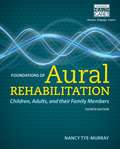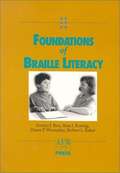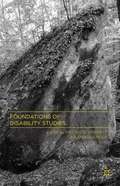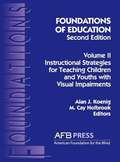- Table View
- List View
The Forbidden Experiment: The Story of the Wild Boy of Aveyron
by Roger ShattuckRoger Shattuck offers a captivating account of this fascinating episode in intellectual history. He examines the relationships that developed among the boy, soon named Victor; Madame Guerin, the woman who fed and washed him; and Itard, the tutor who defiled his colleagues who believed the boy was hopelessly retarded.
Forbidden Signs: American Culture And The Campaign Against Sign Language
by Douglas C. BayntonForbidden Signs explores American culture from the mid-nineteenth century to 1920 through the lens of one striking episode: the campaign led by Alexander Graham Bell and other prominent Americans to suppress the use of sign language among deaf people.<P><P> The ensuing debate over sign language invoked such fundamental questions as what distinguished Americans from non-Americans, civilized people from "savages," humans from animals, men from women, the natural from the unnatural, and the normal from the abnormal. An advocate of the return to sign language, Baynton found that although the grounds of the debate have shifted, educators still base decisions on many of the same metaphors and images that led to the misguided efforts to eradicate sign language.
Forensic Issues in Adolescents with Developmental Disabilities
by Ernest GraltonAdolescents with developmental disabilities are a complex population who require specialised treatment and care. This interdisciplinary text examines the processes involved in working with this client group in forensic settings, and explores the ways in which their needs differ from those of other young people who engage in high risk behaviour or offending. The book covers assessment, intervention and treatment options for adolescents with a wide range of developmental disabilities, including autism spectrum disorders, acquired brain injury, developmental traumatology, and complex comorbidities. It describes the obstacles, challenges and opportunities to consider when working with this population, and the role played by various professionals, including forensic psychiatry and psychology, occupational therapy, physiotherapy, education, art psychotherapy and social work. The book also outlines the issues to consider when working in secure and community settings as well as the legal aspects of working with this client group, and the complex issues surrounding risk assessment. The first comprehensive account of forensic issues in adolescents with developmental disabilities, this book will be an indispensible primary resource for a wide range of professionals, including child and adolescent psychiatrists, community psychiatric nurses, developmental paediatricians, social workers and youth workers, lawyers and advocates.
Forensic Mental Health: Framing Integrated Solutions
by Michele P. BratinaForensic Mental Health: Framing Integrated Solutions describes a criminal justice–mental health nexus that touches every population—juvenile and adult male and female offenders, probationers and parolees, the aging adult prison population, and victims of crime. In the United States today, the criminal justice system functions as a mental health provider, but at great cost to society. The author summarizes the historical roots of this crisis and provides an overview of mental illness and symptoms, using graphics to illustrate the most prevalent disorders encountered by police and other first responders. Bratina demonstrates in detail how the Sequential Intercept Model (SIM) supports integration of the U.S. healthcare and justice systems to offer more positive outcomes for offenders with mental illness. This book takes a multidisciplinary approach, addressing social work, psychology, counseling, and special education, and covers developments such as case-law related to the right to treatment and trauma-informed care. Designed for advanced undergraduates, this text also serves as a training resource for practitioners working with the many affected justice-involved individuals with mental illness, including juveniles, veterans, and substance abusers.
Forest School and Autism: A Practical Guide
by Michael JamesForest School's innovative outdoor approach offers specific benefits to learners with autism, including increased social skills, raised self-esteem and improved sensory function. This guide raises autism awareness amongst practitioners by providing practical and easy-to-follow advice for adapting Forest School activities for those with autism. For those coming from a mainstream Forest School background, the author offers an introduction to autism and shows what Forest School can offer people with autism - both children and adults - with first-person accounts that highlight its success with this group. The guide gives advice on the social and sensory benefits, offers practical advice on safety and on how to set up a Forest School and finally presents specific activities to be incorporated into practitioners' routines.
Forest School and Encouraging Positive Behaviour: Outdoor Education Skills for Pupils with Additional or Complex Needs
by Dave RylanceThis innovative approach to managing Forest School, with a focus on children with additional or complex needs, helps children to explore, increase their confidence, take measured risks, improve their self-esteem and become more resilient.Offering a behavioural toolbox and techniques you can put in place immediately within your own practice, this hands-on guide supports positive behaviour with a full range of learners. The book provides you with the tips, suggestions and philosophy to utilise outdoor skills and activities that children can benefit from, regardless of many additional needs they may have.
Forever Boy: A Mother's Memoir of Autism and Finding Joy
by Kate SwensonWith her popular blog, Finding Cooper's Voice, Kate Swenson has provided hope and comfort for hundreds of thousands of parents of children with Autism. Now, Kate shares her inspiring story in this powerful memoir about motherhood and unconditional love When Kate Swenson&’s son Cooper was diagnosed with severe, nonverbal autism, her world stopped. She had always dreamed of having the perfect family life. She hadn&’t signed up for life as a mother raising a child with a disability.At first, Kate experienced the grief of broken dreams. Then she felt the frustration and exhaustion of having to fight for your child in a world that is stacked against them. But through hard work, resilience and personal growth, she would come to learn that Cooper wasn&’t the one who needed to change. She was. And it was this transformation that led Kate to acceptance—and ultimately joy. In Forever Boy, Kate shares her inspiring journey with honesty and compassion, offering solace and hope to others on this path and illuminating the strength and perseverance of mothers.
Forever Neverland
by Susan AdrianWhat if Peter Pan wanted to take you to Neverland? Would you go? A contemporary sequel to J. M. Barrie's timeless classic Peter Pan, perfect for kids who loved THE LAND OF STORIES and dream of going to Neverland. <P><P>Clover and Fergus are the great-great-grandchildren of Wendy Darling (yes, that Wendy). And now Peter Pan wants to take them to Neverland for the adventure of their lives! But Clover is a little nervous--she's supposed to look after her brother. Fergus is autistic, and not everyone makes him feel welcome. What will happen to him in this magical world? <P><P>Fergus isn't nervous at all. To him, Neverland seems like a dream come true! He's tired of Clover's constant mothering and wants some independence, like Peter and the Lost Boys have. He wonders, Why can't the real world be more like Neverland? <P><P>Neverland is fun and free, but it's also dangerous and even scary at times. Unfamiliar creatures lurk in the shadows, and strange sounds come from the waters. And then the mermaids start to go missing. . . . <P><P>In an imaginative and thoughtful continuation of the story of Peter Pan, Susan Adrian explores Neverland with a fresh perspective and indelible warmth, offering a new adventure based on a beloved classic!
Forget Me Not
by Nancy Van Laan Stephanie GraeginYoung readers are given an emotionally powerful yet accessible introduction to what it is like having a close family member with Alzheimer's disease in this deeply resonant story about the relationship between a girl and her grandmother. Grandma's whole family is concerned as they start to notice that she is becoming more and more forgetful. After they find her wandering the neighborhood, they need to make an important decision on her behalf--that the time has come for her to move out of her house and into an assisted living community where she can have the best care possible.
Forget Me Not
by Ellie TerryAstronomy-loving Calliope June has Tourette syndrome, so she sometimes makes faces or noises that she doesn't mean to make. When she and her mother move yet again, she tries to hide her TS. But it isn't long before the kids at her new school realize she's different. Only Calliope's neighbor, who is also the popular student body president, sees her as she truly is--an interesting person and a good friend. But is he brave enough to take their friendship public? As Calliope navigates school, she must also face her mother's new relationship and the fact that they might be moving--again--just as she starts to make friends and finally accept her differences. Ellie Terry's affecting debut will speak to a wide audience about being true to oneself.
Forget Me Not: Read & Listen Edition
by Nancy Van LaanYoung readers are given an emotionally powerful yet accessible introduction to what it is like having a close family member with Alzheimer&’s disease in this deeply resonant story about the relationship between a girl and her grandmother. Grandma&’s whole family is concerned as they start to notice that she is becoming more and more forgetful. After they find her wandering the neighborhood, they need to make an important decision on her behalf—that the time has come for her to move out of her house and into an assisted living community where she can have the best care possible.This Read & Listen edition contains audio narration.
Forgiving God: A Story of Faith
by Hilary YanceyA young mother's life is forever changed and her faith in God is broken when her son in diagnosed with complex physical disabilities. Restore and grow your faith as you read about Hilary Yancey's personal journey back to God. Three months into her pregnancy with her first child, Hilary Yancey received a phone call that changed everything. As she learned the diagnosis-cleft lip and palate, a missing right eye, possible breathing complications-Hilary began to pray in earnest. Even in the midst of these findings, she prayed that God would heal her son. God could do a miracle unlike anything she had seen. Only when Hilary held her baby, Jack, in her arms for the first time did she realize God had given her something drastically different than what she had demanded. Hilary struggled to talk to God as she sat for six weeks beside Jack's crib in the NICU. She consented to surgeries and learned to care for a breathing tube and gastronomy button. In her experience with motherhood Hilary had become more familiar with the sound of her son's heart monitor than the sound of his heartbeat. Later, during surgeries and emergency trips back to the hospital with her crying, breathless boy, Hilary reproached the stranger God had become. Jack was different. Hilary was not the mother she once imagined. God was not who Hilary knew before. But she could not let go of one certainty-she could see the image of Christ in Jack's face. Slowly, through long nights of wrestling and longer nights of silence, Hilary cut a path through her old, familiar faith to the God behind it. She discovered that it is by walking out onto the water, where the firm ground gives way, that we can find him. And meeting Jesus, who rises with his scars to proclaim new life, is never what you once imagined.
The Forgotten Angel (Forever Angels)
by Suzanne WeynChristina's never felt so alone... Christina never doubted the existence of angels. She’d always felt sure a special being watched over her. All that changed after her accident. Now she’s facing a long and grueling recovery. She has bruises, a broken arm and is blind--and feeling angry and betrayed. The way Christina sees it, if anyone really was looking out for her, she wouldn’t have had the accident to begin with. Losing her belief in angels is a devastating blow, especially now when Christina needs every ounce of strength and inspiration to help her recover. Christina needs to get her angels back. But how? Ages 8-12
The Forgotten Society: A Portfolio of 92 Drawings
by Alan E. Cober Leslie Cober-GentryA prominent artist ventured behind locked doors to portray three "forgotten" social classes. Alan E. Cober encountered his subjects in retirement homes as well as such notorious institutions as Willowbrook State School and Sing Sing Correctional Facility. His 92 expressive portraits of social outsiders recall the traditions of Albrecht Dürer and George Grosz.
Forked Tongue: The Politics of Bilingual Education
by Rosalie PorterToday children who are not fluent in English—legal and illegal immigrants, refugees, and native born—are the fastest growing portion of our population, accounting for more than half the children in classrooms in many city schools. Bilingual education programs established by federal and state laws have required that such students be taught basic subjects in their native languages rather than in English. Judged by most applicable measures—such as achievement scores and dropout rates—these programs have not been successful.This edition includes new material on recent efforts to reform bilingual education, on the growing trend across the country toward English language programs, on the latest national research studies, and on the movement to make English the official language of the United States. Forked Tongue is a devastating inside account of how the twenty-eight-year experiment in bilingual education has failed our language-minority children—and why. Rosalie Porter draws on local, state, and international experience to provide us with the first authoritative account of which policies, programs, and practices actually succeed with the children they are intended to serve. Forked Tongue will be of interest to educators, sociologists, and scholars interested in second language acquisition.
Fortunate Son: The Autobiography of Lewis B. Puller, Jr.
by Lewis B. PullerLewis B. Puller, Jr., the son of the most decorated Marine in the Corps' history, volunteered for duty in Vietnam after college. He came home a few months later missing both legs, his left hand, and two fingers of his right hand. He would never walk again, though he would complete law school, serve on President Ford's clemency board, and run for Congress. He would also live with the nightmares of Vietnam, and his growing dependence on alcohol. Few have told their story with more honesty, or more devastating openness.<P><P> Pulitzer Prize Winner
The Foster Care System
by Joyce LibalIf your parents were unable to care for you, where would you go? Do you have family or friends who would take you in and support you? Unfortunately, many children don't have this option. The foster care system was put in place to help young people who find themselves without homes. As you follow the story of Bobby and Cara, two children whose family was torn apart, you'll discover more about the foster care system. You'll learn about the history behind the system, from the Orphan Trains in the United States to the British Home Children who were originally sent to Canada--and you'll discover some of the challenges young people in the foster care system face today.
Fostering Accessible Technology through Regulation
by Delia Ferri and G. Anthony GiannoumisTechnology has attracted an increasing level of attention within studies of disability and disability rights. Many researchers and advocates have maintained skepticism towards technology out of the fear that technology becomes another way to ‘fix’ impairments. These skeptical views, however, contrast with a more positive approach towards the role that technology can play in eliminating barriers to social participation. Legal scholarship has started to focus on accessibility and accessible technology and in conjunction with the recently adopted United Nations Convention on the Rights of Persons with Disabilities has put a great emphasis on accessibility, highlighting the role that accessible technology plays in the promotion and protection of the rights of people with disabilities. Against this background, this book gathers together different contributions that focus on enhancing the production, marketing and use of accessible technology. Building upon previous academic studies and in light of the UNCRPD, accessible technology is considered a tool to increase autonomy and participation. Overall, this book attempts to show, through a multifaceted and inter-disciplinary analysis, that different regulatory approaches might enhance accessible technology and its availability. This title was previously published as a special issue of the International Review of Law, Computers & Technology.
Fostering Resilient Learners: Strategies for Creating a Trauma-sensitive Classroom
by Kristin Souers Pete HallIn this galvanizing book for all educators, Kristin Souers and Pete Hall explore an urgent and growing issue--childhood trauma--and its profound effect on learning and teaching. <P><P> Grounded in research and the authors' experience working with trauma-affected students and their teachers, Fostering Resilient Learners will help you cultivate a trauma-sensitive learning environment for students across all content areas, grade levels, and educational settings. The authors--a mental health therapist and a veteran principal--provide proven, reliable strategies to help you <P><P> * Understand what trauma is and how it hinders the learning, motivation, and success of all students in the classroom. * Build strong relationships and create a safe space to enable students to learn at high levels. * Adopt a strengths-based approach that leads you to recalibrate how you view destructive student behaviors and to perceive what students need to break negative cycles. * Head off frustration and burnout with essential self-care techniques that will help you and your students flourish. <P><P> Each chapter also includes questions and exercises to encourage reflection and extension of the ideas in this book. As an educator, you face the impact of trauma in the classroom every day. Let this book be your guide to seeking solutions rather than dwelling on problems, to building relationships that allow students to grow, thrive, and--most assuredly--learn at high levels.
Foucault and Feminist Philosophy of Disability
by Shelley Lynn TremainFoucault and Feminist Philosophy of Disability is a distinctive contribution to growing discussions about how power operates within the academic field of philosophy. By combining the work of Michel Foucault, the insights of philosophy of disability and feminist philosophy, and data derived from empirical research, Shelley L. Tremain compellingly argues that the conception of disability that currently predominates in the discipline of philosophy, according to which disability is a natural disadvantage or personal misfortune, is inextricably intertwined with the underrepresentation of disabled philosophers in the profession of philosophy. Against the understanding of disability that prevails in subfields of philosophy such as bioethics, cognitive science, ethics, and political philosophy, Tremain elaborates a new conception of disability as a historically specifi c and culturally relative apparatus of power. Although the book zeros in on the demographics of and biases embedded in academic philosophy, it will be invaluable to everyone who is concerned about the social, economic, institutional, and political subordination of disabled people.
Foucault and the Government of Disability
by Shelley TremainFoucault and the Government of Disability is the first book-length investigation of the relevance and importance of the ideas of Michel Foucault to the field of disability studies and vice versa. Over the last thirty years, politicized conceptions of disability have precipitated significant social change, including the landmark Americans with Disabilities Act in 1990, the redesign of urban landscapes, the appearance of closed-captioning on televisions, and the growing recognition that disabled people constitute a marginalized and disenfranchised constituency. The provocative essays in this volume respond to Foucault's call to question what is regarded as natural, inevitable, ethical, and liberating, while they challenge established understandings of Foucault's analyses and offer fresh approaches to his work. The book's roster of distinguished international contributors represents a broad range of disciplines and perspectives, making this a timely and necessary addition to the burgeoning field of disability studies. "A serious step forward not only for disability studies but for the range of theoretical positions associated with Foucault. Foucault and the Government of Disability will provide for years to come a basis for rethinking Foucault's impact on social theory as well as a foundation for active political struggle against the oppression of people with disabilities." -- Tobin Siebers, University of Michigan. "Testimony to the enduring power of Foucault's work to stimulate new ways of thinking about and resisting the pernicious effects of normalization within modern societies... Critically engaging Foucault as well as received interpretations of his work, this collection is intended for readers of Foucault as well as critical disability theorists. It delivers on its promise to stimulate us to think differently about both disability and Foucault." -- Jana Sawicki, Williams College. Shelley Tremain teaches in the Philosophy Department of the University of Toronto at Mississauga.
Foundations of Aural Rehabilitation: Children, Adults, and their Family Members, Fourth Edition
by Nancy Tye-MurrayFOUNDATIONS OF AURAL REHABILITATION: ADULTS, CHILDREN, AND THEIR FAMILY MEMBERS, 4th Edition introduces the fundamentals of rehabilitative audiology and hearing-related speech-language pathology in an easy-to-read style, along with concrete suggestions that help you deliver high-quality services. Designed for both classroom learners and as a reference for seasoned professionals, this widely-used book entwines theory with clinical practice, and presents research-based information for identifying, diagnosing, and treating hearing and communication-related disorders. I Important topics include patient-centered services, counseling, selection and fitting of listening devices, conversational fluency and communication strategies training, auditory training, speechreading, and language and speech promotion. Divided into sections to cover adult and child populations separately, the book distills readings into important "Take Home" points, and illustrates with representative research reports, case studies, example procedures, and lively figures. Text box inserts, sidebar bullet points, tables, and quotes from professionals and patients also pique interest, along with key resources and appendices for clinical practice or self-study.
Foundations of Braille Literacy
by Evelyn J. Rex Alan J. Koenig Diane P. Wormsley Robert L. BakerHistorical perspectives on literacy for blind people; changing views on teaching, reading and writing; approaches and strategies for reading and writing Braille literacy.
Foundations Of Disability Studies
by Matthew Wappett Katrina ArndtA collection of eight essays by scholars who have published extensively within the disability studies literature, and who have helped build the field to its current state. Includes contributions from Robert Bogdan, Doug Biklen, Susan Schweik, and more.
Foundations of Education: Volume II
by M. Cay Holbrook Alan J. KoenigA new and complete revision of a landmark text. This comprehensive compilation of state-of-the-art information is the essential resource on educating visually impaired students, the essential theory forming the knowledge base, and methodology of teaching visually impaired students in all areas. This completely revised, updated edition reflects federal guidelines on educational programming, specialized assessment, and critical knowledge on the core curriculum and expanded core curriculum. A must-have for educators, administrators, policy makers, and allied in the visual impairment field!
